Share the page
Small-Scale Initiatives Program : 20 years of Local Actions supported by the FFEM to help preserve African biodiversity
Published on
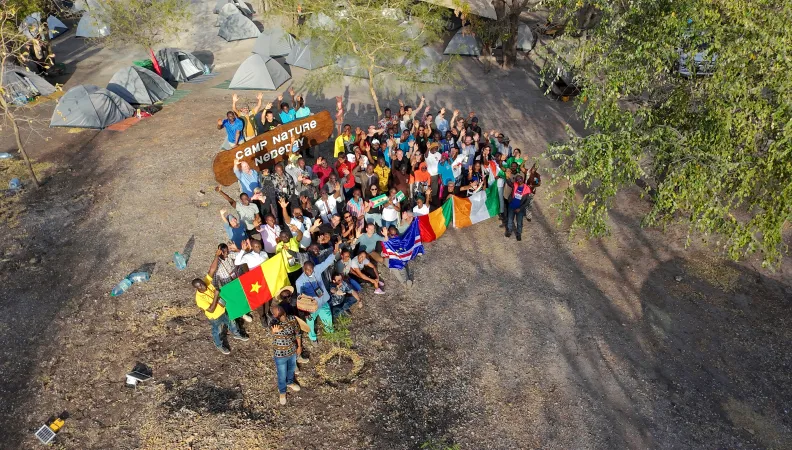
From February 2 to 7, the Forum celebrating the 20th anniversary of the Small Initiatives Program (PPI) marked two decades of concrete actions and exemplary commitments to the preservation of African biodiversity. Led by the French Global Environment Facility (FFEM) and the French Committee of the International Union for Conservation of Nature (IUCN), this program supports African Civil Society Organizations (CSOs) in their efforts to preserve a unique natural heritage and promote sustainable local development across the continent.
For the past 19 years, the FFEM has been working alongside local actors: with a total co-financing of €17 million, it has supported 214 African CSOs in implementing 305 biodiversity protection projects across 28 African countries.
Held in the exceptional setting of the Saloum Delta Biosphere Reserve in Toubacouta, southwestern Senegal, this forum brought together key actors from African civil society who have benefited from the PPI. More than just a commemoration, this event provided an opportunity to assess the challenges faced, share lessons learned, and highlight innovative solutions to maximize the impact of initiatives at the local level.
Through rich exchanges and structured collective reflection, the forum reaffirmed the participants' commitment to working together for the preservation of African biodiversity while outlining an ambitious and renewed roadmap for the years to come.
Nicolas Rossin, project manager for Biodiversity, Protected Areas, and Trust Funds at the FFEM, and Paul Estève, coordinator of the program within the French Committee of IUCN, were both present at the forum. They share with us what makes the PPI unique and relevant in African environmental action.
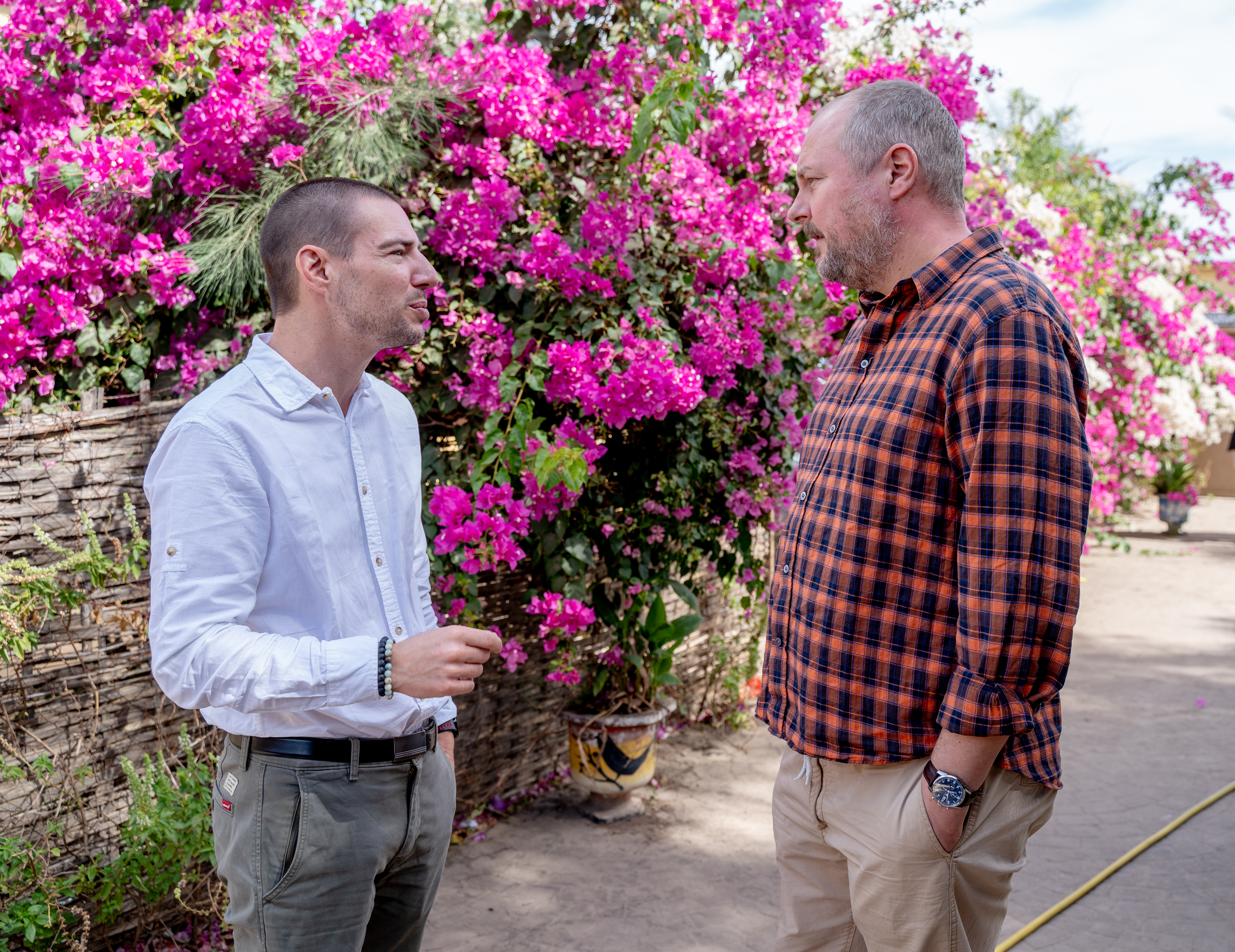
How did the partnership between the French Committee of IUCN and the FFEM within the "Small Initiatives Program" come about ?
Nicolas Rossin : The partnership between the French Committee of IUCN and the FFEM was born in 2006 from a shared commitment to supporting environmental Civil Society Organizations (CSOs) in sub-Saharan Africa. The FFEM identified the need for a financing mechanism tailored to local CSOs, which are often excluded from traditional international solidarity funding channels.
The French Committee of IUCN, with its expertise and network, positioned itself as a key partner to structure and manage the Small Initiatives Program (PPI). Since then, this program has financed and supported more than 300 projects across sub-Saharan Africa. To date, the countries benefiting from PPI support range from Cape Verde to Burundi. It is also worth noting that for the past 10 years, the FFEM has been funding a counterpart to this program, supporting civil society in North Africa (PPI OSCAN).
Why would you say the PPI program is particularly suited to the environmental protection ecosystem in sub-Saharan Africa ?
Paul Estève : Sub-Saharan Africa is home to exceptional biodiversity, with diverse ecosystems ranging from tropical forests to savannas, as well as marine and coastal areas. Conserving these ecosystems is crucial to maintaining their delicate balance in the face of growing human pressures (overexploitation of resources, deforestation, poaching, etc.) and the effects of climate change.
The PPI is a flexible program designed to meet the specific needs of CSOs. It funds grassroots initiatives while strengthening the capacities and influence of African civil society on these issues. More importantly, it is built for the long term, offering the possibility of receiving multiple rounds of support.
IUCN helps CSOs formulate long-term strategies, including regular evaluations to ensure proper project implementation. When funding comes to an end, IUCN assists beneficiaries in sustaining their actions, building strategic alliances, and developing new partnerships to amplify the impact of their initiatives.
Nicolas Rossin : While the scale of the CSOs supported by the PPI is often relatively small, their in-depth knowledge of local conditions and both environmental and social challenges makes them key players in identifying relevant, concrete, and realistic solutions to ecosystem degradation in their respective contexts. This local anchoring is a crucial factor in ensuring the sustainability of these solutions and their alignment with the multiple needs of the populations involved. Moreover, these CSOs are, in a way, the most legitimate voices for advocating environmental protection in Africa.
For the FFEM, supporting these actors, whom we could not finance directly due to their smaller size, complements our broader efforts to preserve the environment across the continent. These organizations also serve as valuable sources of information on the realities of ongoing environmental dynamics in Africa.
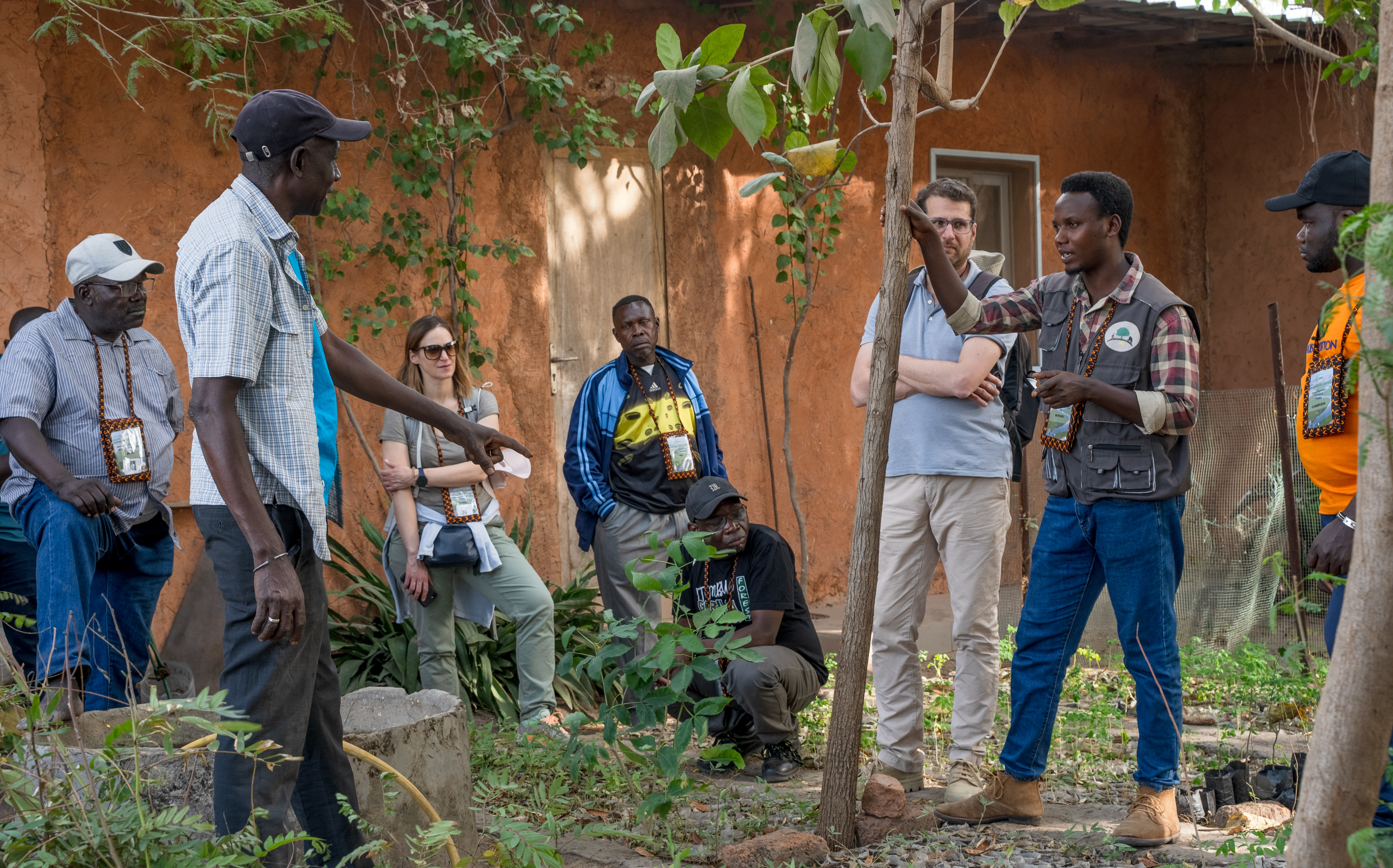
What challenges do environmental CSOs face on the African continent?
Paul Estève : African CSOs face several obstacles :
- First, their access to funding is very limited : major international funding sources are often inaccessible to smaller organizations.
- Often, they have weak organizational structures : many local CSOs lack administrative and financial management skills, which hinders their development and ability to attract new donors.
- Their visibility is low, and their impact is often underestimated, making it difficult to connect with international networks.
- Logistical and human resource challenges, such as lack of qualified personnel and difficulties in sustaining long-term actions remain significant hurdles.
How does the PPI program address these challenges ?
Paul Estève : The PPI is a flexible program designed to meet the specific needs of CSOs. It provides funding for grassroots initiatives while strengthening the capacity and influence of African civil society on environmental issues. Most importantly, it is a long-term initiative, allowing beneficiaries to receive multiple rounds of support.
IUCN helps CSOs develop long-term strategies, including regular evaluations to ensure proper project implementation. When funding ends, IUCN assists beneficiaries in sustaining their actions, creating strategic alliances, and developing new partnerships to amplify their impact.
Thus, the PPI goes beyond mere funding by offering :
- Direct financial support for concrete projects, with an average grant of €32,000 and an implementation period of around 20 months.
- Capacity building through tailored training in project management, governance, communication, and more.
- Technical support from the French Committee of IUCN and a network of four regional coordinators covering West Africa, the Gulf of Guinea, and Central Africa.
- Networking opportunities to facilitate exchanges between CSOs, share experiences and tools, and improve access to additional funding sources.
The different phases of the PPI have evolved significantly (personalized training, diversified funding options, etc.). What are the main objectives for the upcoming seventh phase of the program ?
Nicolas Rossin : The sixth phase of the PPI is currently coming to an end, with an independent evaluation underway. The conclusions and recommendations from this evaluation will help shape PPI 7. Overall, this next phase aims to further increase the impact of funded projects while continuing to strengthen the CSOs involved.
Current discussions focus on expanding the geographical scope of PPI 7, potentially including a few additional countries. There is also consideration of enhancing the program’s support for CSO organizational development, helping them scale up their solutions, which require more substantial financial resources.
This “final step” in diversifying funding sources is critical. The goal is to help some CSOs reach a level where they can access institutional donors such as the FFEM or the AFD.
The Nebeday program is a prime example of a CSO that successfully secured direct FFEM funding. Could you tell us more about it ?
Nicolas Rossin : Nebeday is indeed a great “success story” from our program. It is a Senegalese CSO that has been active since 2011 in sustainable natural resource management, improving rural livelihoods, and protecting ecosystems—particularly mangroves.
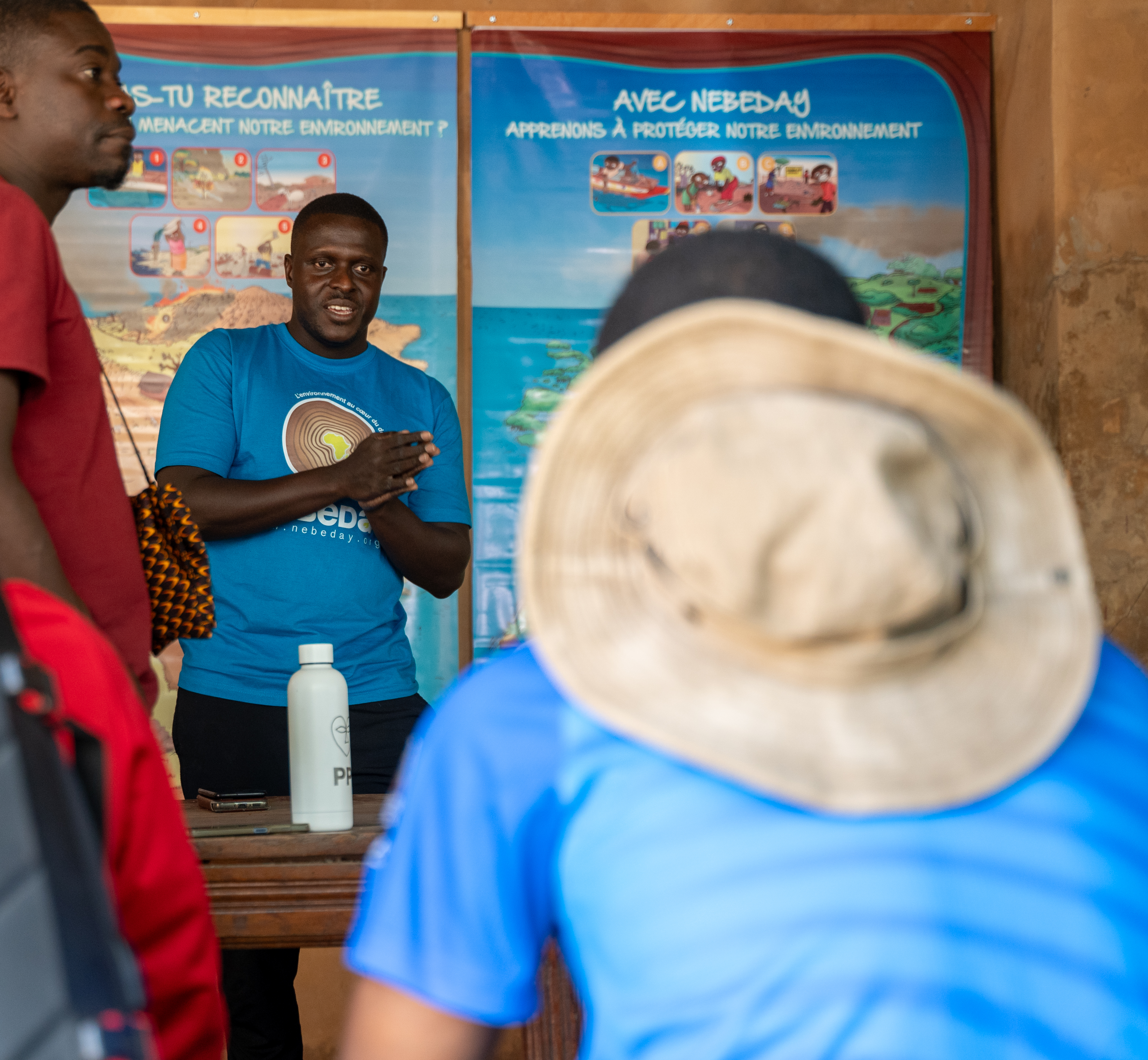
Initially supported by the PPI, the organization gradually structured its actions and gained credibility—not only with the local communities and authorities it works with but also with other donors. Thanks to the support provided by the PPI framework (through three funding rounds), Nebeday was able to secure larger-scale funding, including direct funding from the FFEM. This trajectory demonstrates that strategic support can transform a small local initiative into a large-scale, structured program.
Is there a particular sense of emulation among the different CSOs, or at least a willingness to share practices and experiences? What benefits do CSOs gain from this ?
Paul Estève : One of the pillars of the PPI is the networking of CSOs. Various events, such as exchange trips between program partners, participation in regional workshops, and attendance at international events (COPs, the World Conservation Congress, etc.), are regularly organized.
During the 20th-anniversary Forum of the program, CSOs were invited to take part in 30 thematic sessions, organized as participatory workshops led by project leaders themselves.
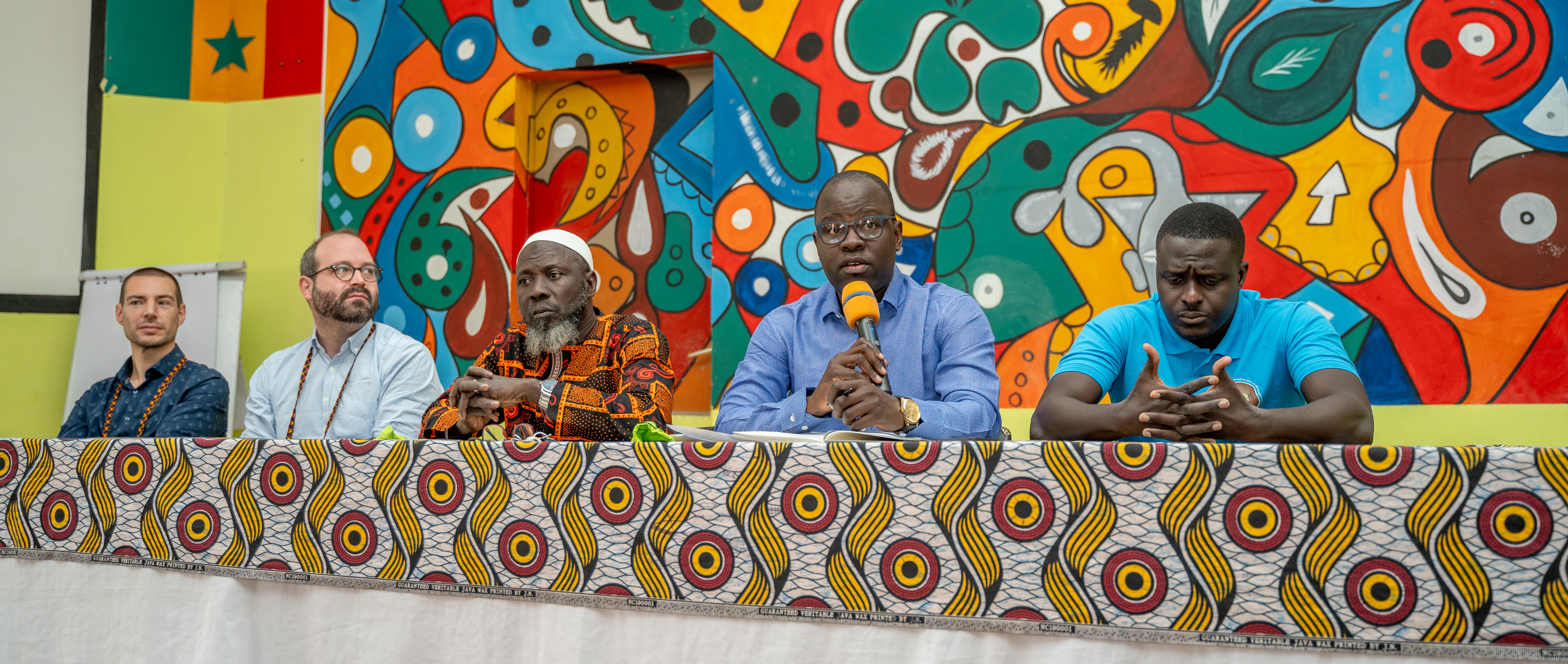
Habituellement engagées de manière isolée, ce moment de dialogue et de collaboration a permis de renforcer leurs actions respectives, dans la poursuite d’un objectif commun : contribuer, à leur échelle, à la préservation de la biodiversité africaine. Des réflexions sont d’ailleurs en cours sur la possibilité pour le PPI de structurer davantage ces échanges en soutenant des programmes de mentorat entre OSC.
Ainsi, nous encourageons les OSC à se rencontrer pour qu’elles échangent leurs bonnes pratiques, partagent leurs expériences et renforcent leur capacité à travailler ensemble, car les bénéfices sont nombreux :
- Échanges de solutions innovantes face aux défis environnementaux.
- Mutualisation des ressources et des compétences.
- Renforcement du plaidoyer environnemental au niveau national et international.
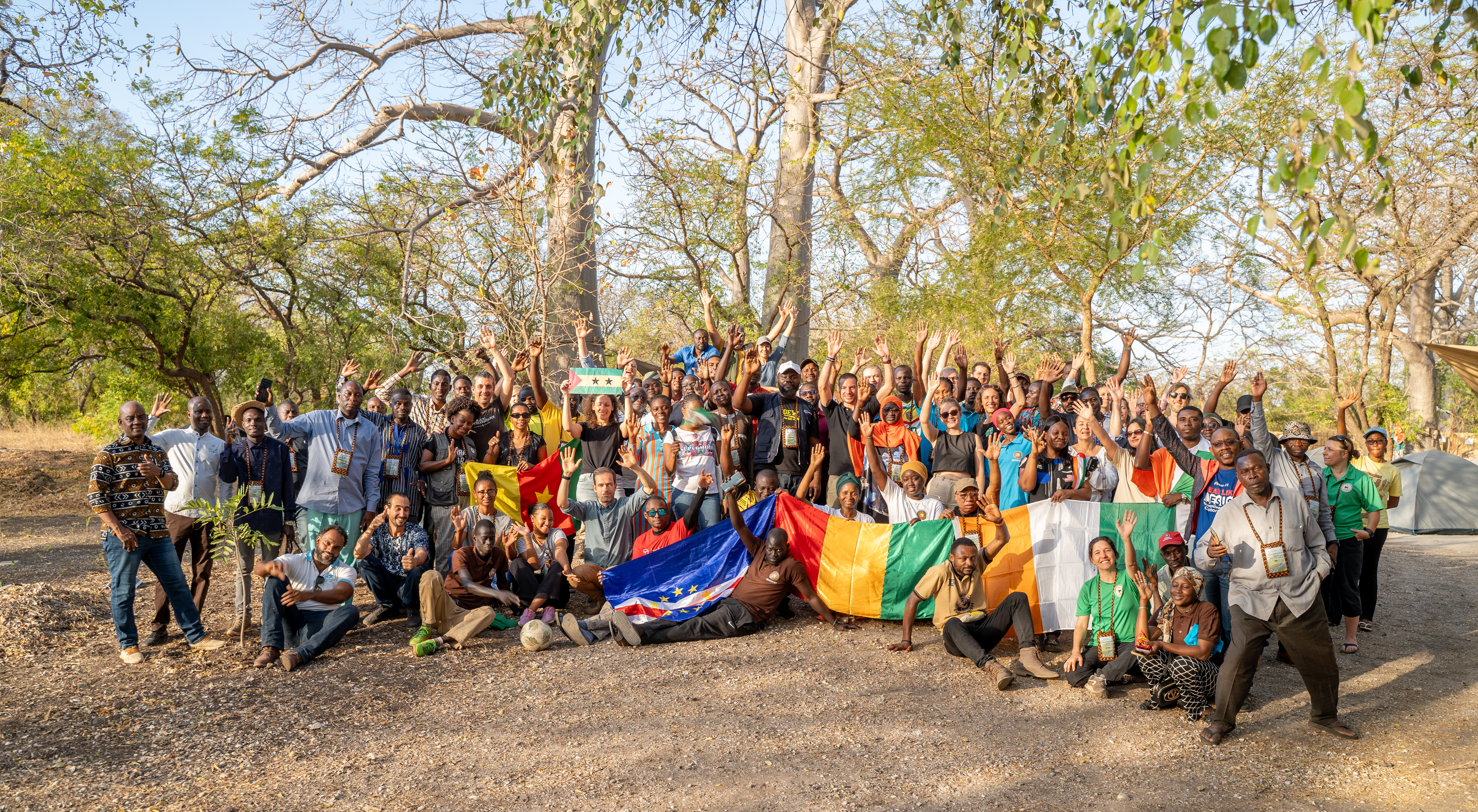
Since the beginning of the program, the tangible results in biodiversity conservation demonstrate the strong impact capacity of CSOs. Over the past 19 years, the program has contributed to:
- Improve conservation of 25 threatened species, including 12 mammal species such as the pangolin, humpback whale, manatee, chimpanzee, bonobo, gorilla, giraffe, elephant, hippopotamus, sitatunga, Roloway monkey, and lemurs.
- The accomplishment of 146 projects focused on the development of 25 pro-biodiversity value chains.
- The creation of 508,103 hectares of community-protected areas.
- The development of 100 management or land-use plans for protected areas.
The French Global Environment Facility (FFEM) and the French Committee of the International Union for Conservation of Nature (IUCN) continue to support this partnership with enthusiasm. This collaboration has proven its sustainability and resilience, as highlighted during this dynamic and productive gathering.
